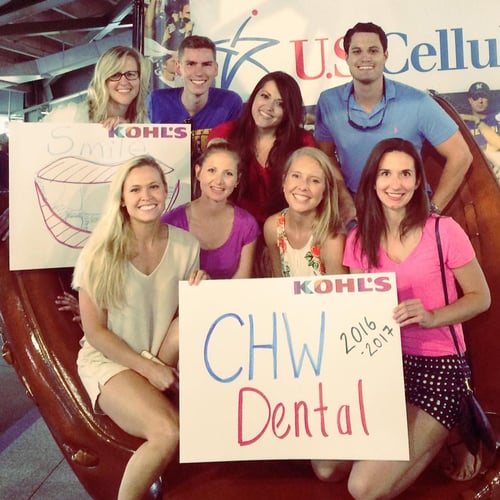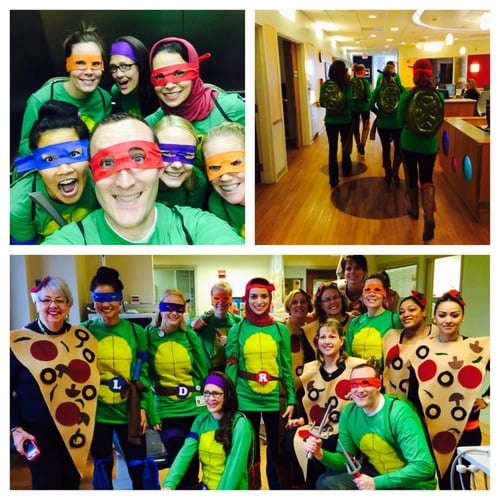Courses and Seminars
The program offers a wide variety of courses and seminars to support a robust academic curriculum that enhances the resident’s education. Courses and seminars include: Craniofacial Growth and Development, Board Preparation Review, Pulp Therapy in Pediatric Dentistry, Pediatric Dental Trauma, Pediatric Dental Infections, Pediatric Medicine, Preventive Concepts in Pediatric Dentistry, Practice Management, Transition of the Human Dentition, Cephalometrics, Oral Pathology, Orthodontic Diagnosis and Treatment Planning, Literature Review, Public Health and Advocacy and Concepts in Pediatric Dentistry (Behavior Guidance, Complex Special Needs, Case Reviews). In addition, numerous lectures are provided within the hospital including Grand Rounds, Pediatric Trauma Rounds and Craniofacial Anomaly Rounds. Residents are given time to attend these lectures with their medical colleagues.
Research
All residents must complete an original research project. Each resident is paired with a faculty member to serve as a research mentor. Projects are presented to the entire Children’s Wisconsin Dental Center staff at the annual Resident Research Day in June.
Poster Presentation
All residents are expected to present a poster at a major meeting during their two-year program.
American Board of Pediatric Dentistry (ABPD) Certification
All residents are expected to complete the Qualifying Exam of the ABPD prior to completion of the program. In addition, mock oral boards are given with experienced faculty members to help the residents prepare for the Oral Clinical Exam portion of the ABPD Certification process.
Teaching
Residents teach pre-doctoral students at Marquette University’s School of Dentistry in the pediatric clinic and also provide a lecture for the second-year pre-doctoral students. Each resident will also lecture a group of medical resident colleagues on topics in oral health and pediatric dentistry.
CLINICAL TRAINING
Scope
Residents receive training in the full scope of advanced pediatric dental techniques including preventive dentistry, restorative procedures, behavior guidance, sedation, pulp therapy, oral pathology, hospital dentistry including OR procedures, pediatric medicine and oral/facial trauma, as well as training in interceptive and select comprehensive orthodontics. The program includes extensive training in dentistry for the medically compromised child, as well as the physically and cognitively challenged patient. Residents are expected to expand their knowledge of pediatrics and integrate dental diagnosis and treatment with the comprehensive medical needs of their patients.
Hospital Training
The hospital experience for the resident is extensive. Operating room cases, inpatient consultations, management of oral/facial infections and traumatic injuries and consultations with medical departments are a part of the resident’s daily life.
Rotations
Throughout the residency, various rotations are offered including pediatric primary care (one week), anesthesiology (four weeks), community health care (two weeks) and specialty medicine including: craniofacial surgery, otolaryngology, child advocacy, speech/audiology, feeding/nutrition, child development and special needs (one week). Residents also staff various interdisciplinary teams, such as craniofacial/cleft palate and the leukemia/lymphoma team. They attend regularly scheduled lectures and various department seminars with the pediatric medical staff.
Emergency On-Call
The residents provide 24-hour, 7-days-a-week on-call emergency care. Emergency call is done via pager and is rotated daily. A first- and second-year resident are paired on-call to share information and help with procedures. Each resident will be on-call approximately one week/month through the two years of training.





